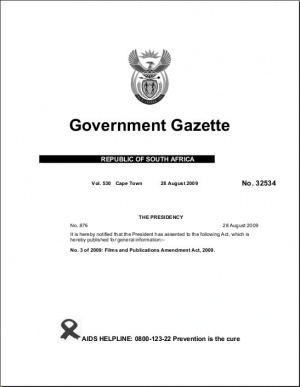Policy
awareNet Privacy Policy This document is a good faith attempt to produce a system of rules to allow full participation with awareNet - a service which is inherently social and personal - with safeguards to protect the privacy of learners and others who use this system, while following the laws of countries in which awareNet nodes are hosted. In brief: we will take all reasonable precautions to keep user's personal data within the closed garden of awareNet, under the control and ownership of it's subject, accessible only to appropriate peers, educators and administrators. We will remove such information from the system on request and anonymize contributions to shared documents. We will not publish learner's contributions or personal information to the public internet or in print without their permission, or a guardian's permission as appropriate and lawful, or unless legally compelled to do so. If you have any concerns about this policy, would like clarification or suspect a breach please contact the Village Scribe Association. We welcome your questions and feedback. Personal Data is information which is specifically about you. Your awareNet server may collect, use and distribute: - Your full name and year of birth
- Class and school membership
- Your contact details for telephone and email (restricted to teachers and administrators)
- Any further information which you furnish on your profile, in blog posts, projects, comments, images and so on.
- Logs of user activity such as logins, page views, chat and so on. We are required by law to keep logs of certain information, and several technical features of awareNet require this information to operate.
Being a peer-to-peer network awareNet will distribute your personal information over a network of computers (nodes) so that awareNet members in other schools and countries may view your profile, your blog and whatever other information you choose to reveal, and interact with you and the content - via chat, comment or personal message. The operators of awareNet assert your ownership of this material, it is yours to edit, delete or retract. Personal messages you send to others belong to them, and they may keep or delete them as they choose. Since we do not claim ownership or distribution rights of uploaded content beyond the closed garden of awareNet, neither do we claim the right to sell, license or rent access to content belonging to awareNet users. awareNet also allows shared content, such as projects and wikis. This material is owned by the group which created it. Due to the versioning system used to manage such content it is impractical to remove a single user's contributions from a document (and all prior versions of it). In this case a user may ask for their profile to be blanked and their name replaced with 'Deleted User'. This allows the history of shared content to be retained while disassociating the user in question from their contributions. Most personal information as published in a user's profile, blog, wall posts, image galleries, etc can be deleted by the user who created it at any time. Should this not be possible - for instance, when a user is banned - we will delete profile and contributions on request. In exceptional cases information stored on awareNet may be retained for use in a police investigation On deletion this information will no longer be available to learners, teachers or others using awareNet. Due to the distributed nature of awareNet it is possible that this information will still exist in server backups and be available to administrators. This data may also be retained in the central revision store. awareNet nodes with poor connectivity may take some time to receive the deletion notice via awareNet's P2P protocol. Once removed from awareNet personal information will only be released to third parties on the instruction of a court of law or when compelled to do so in the course of an investigation by a law enforcement agency. Server logs recording user activity will be retained in compliance with South African law. awareNet nodes and the Village Scribe Foundation may make available non-personal data about awareNet, or republish content from awareNet with the permission of its owner. Non-personal data will mean: - web server, database and content statistics
- the titles of blog posts, projects and forum posts, not associated with any user
- aggregate information about participation on awareNet
- school profiles
- awareNet's help/teacher support wiki
We cannot be responsible for copies of your personal information made by end users - for example, a copy of your profile printed out by a legitimate awareNet user. Likewise we cannot be responsible for the physical security of all web servers hosting awareNet nodes, as they are owned and operated by participating schools and other institutions. We will take all reasonable steps to ensure that those hosting awareNet nodes understand and abide by this policy. We may update this policy from time to time: - as the system is developed and expanded
- as awareNet's capabilities change
- as laws are enacted or changed
- in response to user feedback
- as we gain experience of user's needs and vulnerabilities
In the event of changes to this policy members will be notified via awareNet PM, in classes teaching with awareNet.
|
|
South African Law

Film and Publications Act 2003
24C. (1) For the purposes of this section, unless the context otherwise indicates-
- (a) ‘child-oriented service’ means a contact service and includes a content service which is specifically targeted at children;
- (b) ‘contact service’ means any service intended to enable people previously unacquainted with each other to make initial contact and to communicate with each other;
- (c) ‘content’ means any sound, text, still picture, moving picture, other audio visual representation or sensory representation and includes any combination of the preceding which is capable of being created, manipulated, stored, retrieved or communicated but excludes content contained in private communications between consumers;
- (d) ‘content service’ means-
- (i) the provision of content; or
- (ii) the exercise of editorial control over the content conveyed via a communications network, as defined in the Electronic Communications Act, 2005 (Act No. 35 of 2005), to the public or sections of the public; and
- (e) ‘operator’ means any person who provides a child-oriented contact service or content service, including Internet chat-rooms.
(2) Any person who provides child-oriented services, including chatrooms, on or through mobile cellular telephones or the internet, shall-
- (a) moderate such services and take such reasonable steps as are necessary to ensure that such services are not being used by any person for the purpose of the commission of any offence against children;
- (b) prominently display reasonable safety messages in a language that will be clearly understood by children, on all advertisements for a child-oriented service, as well as in the medium used to access such child-oriented service including, where appropriate, chat-room safety messages for chat-rooms or similar contact services;
- (c) provide a mechanism to enable children to report suspicious behaviour by any person in a chat-room to the service or access provider;
- (d) report details of any information regarding behaviour which is indicative of the commission of any offence by any person against any child to a police official of the South African Police Service; and
- (e) where technically feasible, provide children and their parents or primary care-givers with information concerning software or other tools which can be used to filter or block access to content services and contact services, where allowing a child to access such content service or contact service would constitute an offence under this Act or which may be considered unsuitable for children, as well as information concerning the use of such software or other tools.
(3) Any person who fails to comply with subsection (2) shall be guilty of an offence and liable, upon conviction, to a fine or to imprisonment for a period not exceeding six months or to both a fine and such imprisonment.”
The complete text of this Act can be downloaded in Adobe PDF format from polity.org.za.
|

